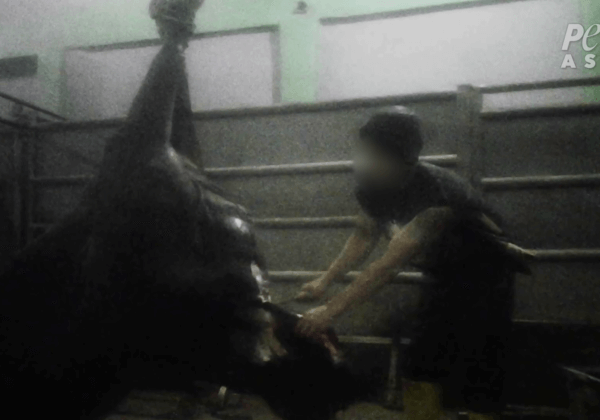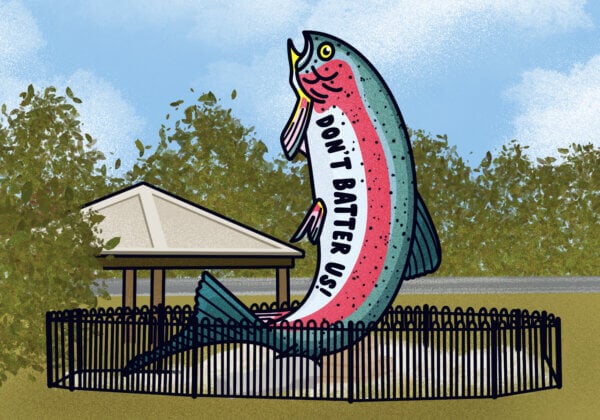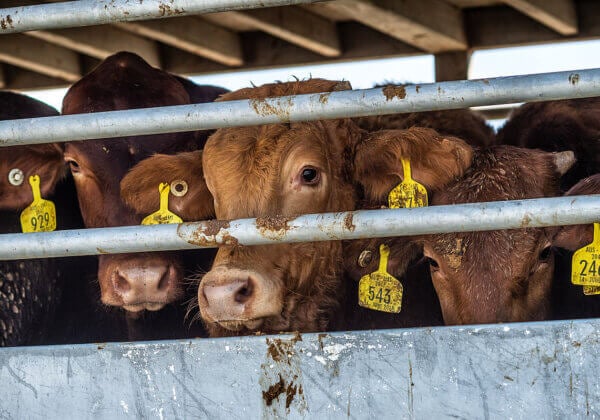Are ‘Superbugs’ Lurking in Your Supper?
 People who eat meat aren’t only hurting animals and the environment, they might also be putting some nasty bugs and bacteria into their own bodies. A recently released report from the US Food and Drug Administration (FDA) shows high levels of antibiotic-resistant bacteria found on meat products. So what is actually in that slab of meat on your dinner plate?
People who eat meat aren’t only hurting animals and the environment, they might also be putting some nasty bugs and bacteria into their own bodies. A recently released report from the US Food and Drug Administration (FDA) shows high levels of antibiotic-resistant bacteria found on meat products. So what is actually in that slab of meat on your dinner plate?
For starters, meat is frequently contaminated with salmonella. In the FDA study, almost 30 per cent of the chicken breast and ground turkey samples contained salmonella bacteria, which were resistant to five different classes of antibiotics, and almost 29 per cent of the ground beef sampled carried strains that were resistant to six. Salmonella can be spread to humans through consumption of meat from infected animals and through cross contamination (via machinery or the hands of the meat handler, for example).
An Australian study by the Commonwealth Scientific and Industrial Research Organisation showed that salmonella levels actually increased on chicken carcasses following processing.
E.coli, a potentially deadly bacteria which can cause diarrhoea and kidney failure, is another common contaminant. US officials detected E. coli in a recent shipment of Australian beef, and up to 13 shipments of Australian meat have been rejected by US authorities over the course of 12 months because of the detection of E.coli bacteria, faeces or “other matter”.
Campylobacter, one of the most common causes of bacterial gastroenteritis in Australia, is often linked to eating the flesh of contaminated chickens. One study found that 30 per cent of campylobacter cases in Australia result from preparing and eating chicken flesh. Symptoms include diarrhoea, cramping, abdominal pain and fever.
“Game” meats, such as kangaroo meat, can pass on the protozoan parasite Toxoplasma gondii, which causes toxoplasmosis. An outbreak of acute and congenital toxoplasmosis in Queensland was linked to the consumption of rare kangaroo meat and undercooked lamb satay. Toxoplasmosis symptoms include headaches, fever, muscle pain and seizures, and babies infected in the womb can suffer from eye damage, hearing loss and mental retardation.
Even if the meat on your plate doesn’t contain disease-causing bacteria, remember that the cholesterol and saturated fat in animal products can increase the risk of suffering from cancer, heart disease, obesity, diabetes and other ailments. So why not take the Pledge to Be Veg and start living a healthier life today?
Posted by Jason Baker






